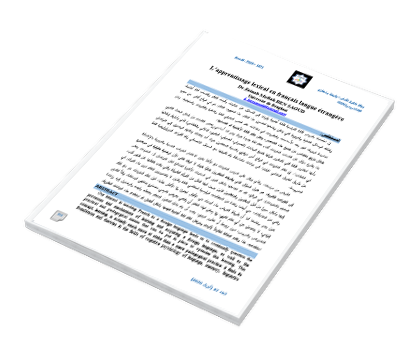L’apprentissage lexical en français langue étrangère
DOI:
https://doi.org/10.37376/jofoa.vi47.2102Abstract
Our interest in teaching French as a foreign language leads us to continually question the processes and mechanisms of learning and acquiring a foreign language; as well as the practical and pedagogical means that can be put in place to optimize this learning. This concept, learning, is actually much more at stake than a mere pedagogical practice: it finds its foundations and theories in the fields of cognitive psychology of language, memory, linguistics and methodology. It is through a wise combination of all these factors that learning and then acquiring a foreign language is possible.
To ask ourselves the question of the acquisition of the lexicon when learning a new language seems to us fundamental. Words are today considered by linguistic research as the "pivots of the language whose author organizes all the data (phonetic, morphological, syntactic, semantic and rhetorical) which condition their insertion in the discourse". The learning of the lexicon is in fact central for the learners since it is thanks to it that they will access the communication, by transforming according to the morphological rules peculiar to the studied language the "raw" meanings in coherent statements and adapted to the communicational context.
The purpose of our study, which focuses on teaching vocabulary taking into account psychological, pedagogical as well as linguistic aspects, is a question currently posed by the didactics since there is still no real recommendation in lexicon. Indeed, it has been more or less neglected in recent years in favor of the act of communication2. The vocabulary is badly perceived by teachers and learners who see in it the boredom of long lists that are daunting to memorize by heart, but which, paradoxically, is also one of the main requirements of language learners and who do not conceive learning without the said lists. However, while it seems obvious to us that this mode of presentation is not the most motivating nor the most captivating, vocabulary learning is nonetheless obligatory, inseparable from any language learning.
This article will offer an analysis of the different mechanisms and phases of learning a foreign language in order to better understand them and then use these theoretical data. It will be a question of trying to transcribe pedagogically what we will have analyzed theoretically.
Downloads





